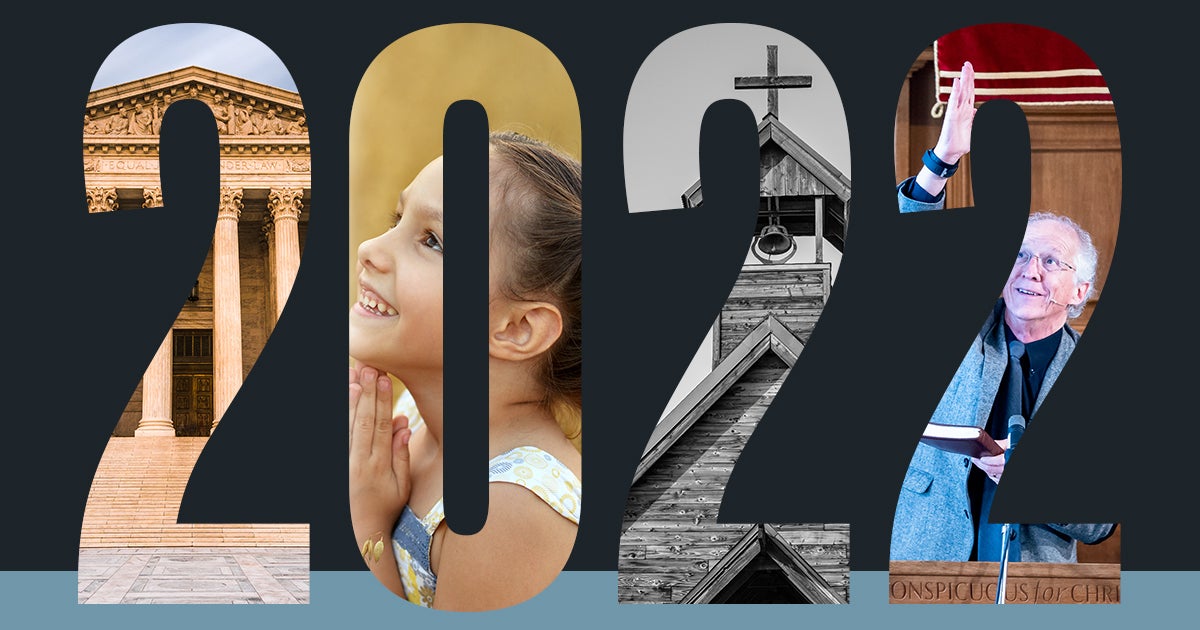
by Jorge Gomez • 7 min read
Even as people of faith continue to fight against cancel culture, “woke” corporations, unconstitutional mandates and the tyranny of petty bureaucrats who constantly threaten our liberties, it’s important we don’t lose sight of the big picture.
The first month of the New Year hasn’t even ended, and we’re already witnessing incredible momentum in favor of religious freedom. Here are four reasons why 2022 could be a historic turning point for Americans’ First Freedom.
1. Supreme Court Stops a Massive Government Power-Grab
The U.S. Supreme Court blocked the Biden administration’s vaccine mandate on companies with more than 100 employees, for now. This mandate is a dangerous and illegal expansion of government power. Additionally, it threatens the freedoms of religious organizations and people of faith in the workplace.
The ruling brought huge relief to First Liberty’s clients—Daystar Television Network, Answers in Genesis and American Family Association—three religious employers who are challenging the mandate in consolidated cases.
The decision also has widespread impact: It protects private employers—including religious organizations—from unconstitutional government overreach. It stops the Biden administration from federalizing the nation’s workforce and forcing businesses to violate the conscience rights of their employees.
Additionally, this week, the U.S. Occupational Health and Safety Administration (OSHA) withdrew its emergency standard and vaccine mandate, after the Supreme Court halted its enforcement.
These are major victories that stop a massive government power-grab and are big wins for religious liberty.
But the fight isn’t finished. OSHA is not withdrawing the mandate as a proposed permanent rule, which may be adopted in coming months. First Liberty will continue to fight on behalf of our clients—and all Americans—to protect them from being forced to violate their faith.
2. Is it Constitutional for a City to Display a Christian Flag?
The Supreme Court recently heard Shurtleff v. City of Boston, a case in which Boston city officials claim the Establishment Clause prohibits them from flying a religious flag on a city-owned flagpole designated as a public forum open to all applicants.
Harold Shurtleff—a local citizen—applied to fly a Christian flag to correspond with an event for Camp Constitution, an organization he founded. But city officials denied his application.
First Liberty filed an amicus brief explaining why it’s constitutional for religious symbols to be displayed on public property, reminding the Court of our landmark victory in American Legion v. American Humanist Association (2019). Also known as the Bladensburg Peace Cross case, the precedent set by this ruling states that many public religious displays should be seen as “presumptively constitutional.”
During the argument, liberal and conservative justices appeared to agree that the city was wrong in refusing to fly the religious flag.
Justice Elena Kagan suggested the city’s refusal was a simple mistake. She asked, “Why is it that people have not been able to correct this mistake?”
Justice Brett Kavanaugh also commented that the city’s denial was based on “…a mistaken view of the Establishment Clause.” He added, “Equal treatment of religious and non-religious groups isn’t a violation” of the Constitution.
Will the Court rule in Shurtleff’s favor and protect his constitutional rights?
There is hope that it will, which would be a tremendous victory for religious liberty. A win would reaffirm what the Supreme Court established in American Legion: The days of misconstruing the Establishment Clause and forcing governments to scrub all public references to religion are over.
3. Government Must Treat Children Fairly
In our Treat Children Fairly case (Carson v. Makin), the Institute for Justice and First Liberty are challenging the state of Maine for banning families from participating in a student-aid program if they choose to send their children to religious schools. Our legal teams argued the case in early December. A final decision is expected by June.
Winning this case could result in greater freedom for parents and families nationwide as they choose the best schools for their children, as well as restored rights for religious schools.
And thanks to previous victories for religious educational options at the Supreme Court, we have good reason to hope for a victory. The Court ruled against religious discrimination in school choice programs in Espinoza v. Montana (2020), a huge win for religious freedom that sets the stage well.
4. The Right to Pray and Publicly Live Out Your Faith
The U.S. Supreme Court recently agreed to hear Coach Joe Kennedy’s case. First Liberty has fought for Coach Kennedy through a six-year legal battle after the Bremerton School District in Washington fired him for silently praying on the football field.
The outcome of this case could bring victory for Coach Kennedy and also change how courts consider all religious freedom cases in the future.
The Court will have an opportunity to protect the right of every American to live out their faith, including praying in public, without the fear of punishment. The outcome could restore the Free Exercise Clause of the First Amendment and strike a serious blow against a bad legal precedent that’s harmed religious freedom for more than 30 years.
This is the first religious liberty case at the Supreme Court involving a public school coach. A favorable result for Coach Kennedy could help protect millions of teachers, coaches and public sector employees.
Securing a Bright Future for Religious Freedom, Together
Thanks to your support, First Liberty has gotten this far. We’ve been blessed with multiple cases at the Supreme Court. These are historic opportunities to impact the lives of people of faith for years to come.
But our work is not yet finished. To keep fighting—and winning—these crucial legal battles, we’ll need your continued support. Will you support First Liberty with a timely donation today?